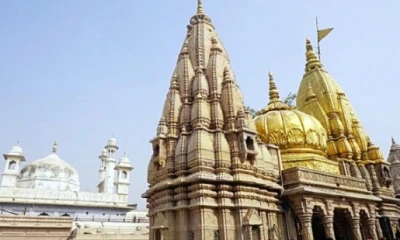The Supreme Court has agreed to hear the plea of the Gyanvapi mosque committee challenging an Allahabad High Court order on the maintainability of lawsuits for the “restoration” of a temple, tagging it with other pending matters on the dispute.
“We will tag this with the main case,” a Bench comprising Chief Justice DY Chandrachud and justices JB Pardiwala and Manoj Misra stated.
The Allahabad High Court had dismissed a batch of petitions filed by the Muslim side contesting the maintainability of the civil suit. It held that a civil suit seeking the restoration of a temple, pending before a Varanasi court, is maintainable, emphasising that the “religious character” of a disputed place can only be decided by the court.
The suit aims to restore a temple at the site currently occupied by the Gyanvapi mosque. According to the Hindu side, the mosque stands on the remains of a temple, forming an integral part of the religious structure.
The Anjuman Intezamia Masjid Committee, responsible for managing the Gyanvapi mosque, along with the Uttar Pradesh Sunni Central Waqf Board and other parties, argued against the maintainability of the suit. They contended that the suit was barred under the Places of Worship (Special Provisions) Act, 1991.
This Act prohibits altering the religious character of holy sites as it stood on Bharat’s Independence Day, with the exception of the Ram Janmabhoomi-Babri Masjid site.
The high court ruled that the suit filed before the district court is not barred by the Places of Worship (Special Provisions) Act, 1991, which forbids “conversion” of the “religious character” of a place from what existed on August 15, 1947.

















